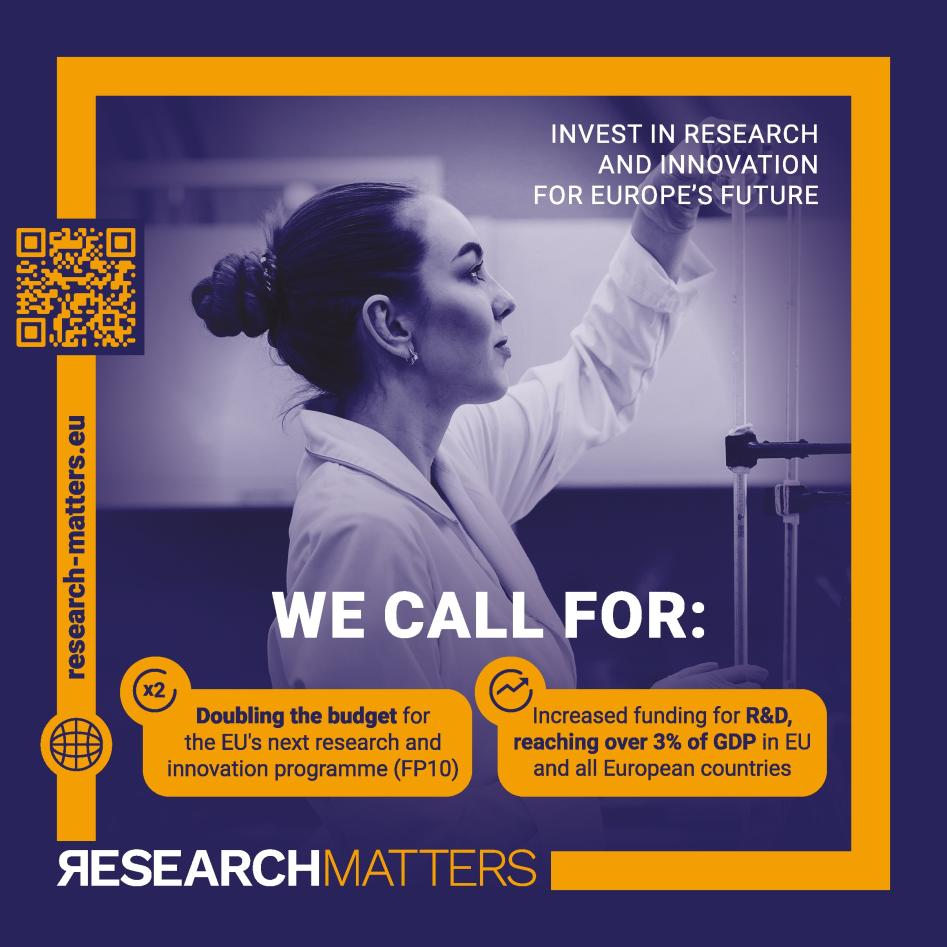Position Paper from UiB on the EU's Next Framework Programme on R&I (FP10)
UiB has published a position paper with recommendations for EU’s next framework programme for research and innovation, FP10. The position paper highlights the importance of increased investments in research and innovation across the whole R&I landscape, from curiosity-driven research to challenge-driven research and innovation.

Main content
At the moment, we are only halfway through Horizon Europe, the present R&I framework programme, but discussions about EUs next framework programme for research and innovation are already well underway. For now, this programme, due to start in 2028, is simply called “FP10”, since it will be EU’s 10th research and innovation programme.
Since the elections in June, there is a new European Parliament, and a new European Commission is about to be established. One of the big tasks ahead is to make decisions about the budget, the structure, and the priorities of EU’s next research and innovation programme, against the backdrop of several influential reports, such as the Letta report and the Draghi report, that have recently pointed to R&I as crucial for strengthening European competitiveness in the years to come.
UiB has taken the opportunity to present recommendations for FP10 in a position paper containing eleven Key messages for FP10 as well as recommendations concerning specific programme components.
Among the Key messages are the recommendations that excellence and open competition should be guiding principles throughout FP10, and that the programme should focus on core European values, such as democracy, academic freedom, ethics, gender equality, and diversity.
The European Research Council and the Marie Skłodowska-Curie Actions are highlighted as highly successful instruments that should be continued with substantially increased budgets, to make it possible to realize more excellent research projects, support research careers, and avoid leaving talent untapped.
Another Key message is to ensure a balanced approach that provides adequate funding opportunities across the spectrum from curiosity driven-research to challenge-driven research and innovation. The position paper emphasizes that we need a strong foundation in basic research to address challenges such as climate change, biodiversity loss, and health risks, and that basic research is also a prerequisite for innovation and development of new technologies.
A concrete suggestion in this regard is to introduce opportunities for basic collaborative research through Research Actions in the successor to Pillar 2, the part of the programme oriented towards societal and global challenges and industrial competitiveness. Such Research Actions, complementing the traditional Research and Innovation Actions and Innovation Actions (known as RIAs and IAs), would support explorative, challenge-oriented research projects, facilitating collaboration among leading research environments across Europe. Another suggestion is to introduce more open, less prescriptive calls and allow for a greater variety in project sizes, making room for smaller and more explorative projects, in which researchers and innovators may test creative ideas on a smaller scale.
The position paper also points out that contributions from social sciences, humanities, arts, psychology, and legal research are essential for understanding and addressing societal and technological challenges. It is therefore crucial to integrate them into the challenge-driven parts of FP10, as well as providing opportunities for bottom-up fundamental research and interdisciplinary research within these fields.
Regarding innovation, UiB recommends that FP10 strengthen innovation funding instruments, inviting all disciplines to contribute and acknowledging diverse routes of knowledge transfer that include, but go beyond, commercialization.
A high-level expert group established by the European Commission and led by Manuel Heitor, previous Minister of Science, Technology and Higher Education in Portugal, will present its report in October. The report will provide input to the interim evaluation of Horizon Europe and give recommendations for FP10. The Commission will present their suggestion for FP10 in the summer of 2025.

